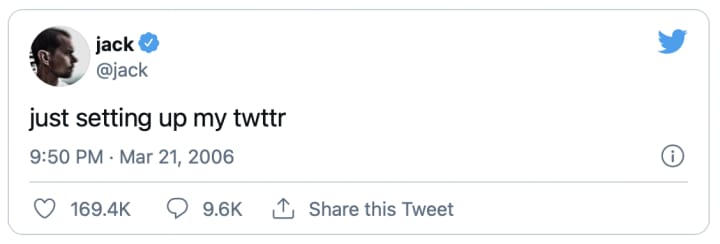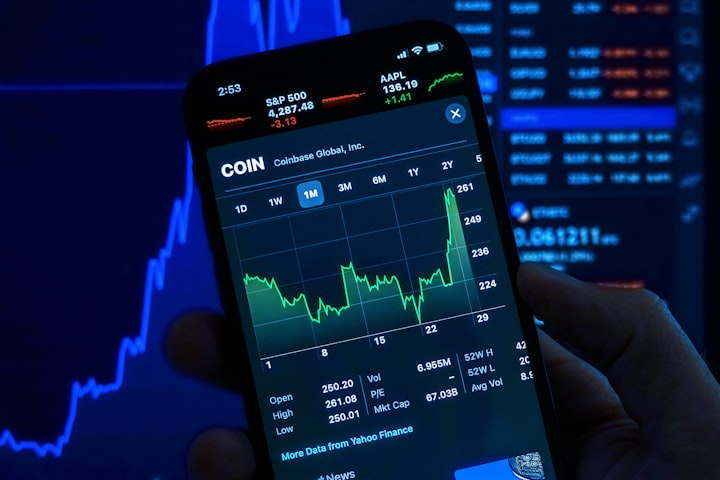Are Digital Collectibles Pure Speculation?
Or can the hype be explained by the same human emotions and cultural drivers behind the interest in their analog counterparts?

As I wrote about here, people collect all kinds of things for all kinds of reasons. Plenty of studies have been done on the emotional and cultural drivers behind our innate instinct to collect. These studies have never been done in a digital context though and for good reason. The digital collectibles market has really only existed in a few years and has only gotten some mainstream attention in the last year.
The NFT (non-fungible token) technology has sparked a huge proliferation of digital art and collectibles of various kinds, but many people are skeptical of their staying power. What characterizes the world of physical collectibles is that most collectors are motivated first and foremost by a personal interest in what they collect, whether it stems from memories and nostalgia, an appreciation for a collectible's aesthetics, or its historical and cultural relevance. People undoubtedly buy physical collectibles for speculation as well, but it's not the only or even the primary market driver.
Collectors who buy out of interest rather than speculation are more likely to own their collectibles long-term, reducing the available supply and leading to a healthy market. Therefore, it's important to consider if the world of digital collectibles is different:
Is it all just hype and speculation, inevitably leading to a massive market bubble and subsequent crash?
Or, on the contrary, can the interest in digital collectibles be explained by the same deep-rooted human emotions and cultural drivers that fuel the physical collectibles market? Below I'll go through the 10 most common reasons behind people's motivation to collect, in no particular order, and assess their applicability in a digital context.
Disclaimer
This article is based on my own experience as an investor, collector, and general crypto- and NFT enthusiast. I'm by no means a financial advisor, nor an expert on collectibles or human psychology, so read this article as my humble attempt at making sense of the enormous interest in digital collectibles.
Reason #1: Speculation
No reason to spend too much time on this one. The one reason that everyone seems to agree plays a big role in the digital collectibles market. The question is how big.
Reason #2: Nostalgia and memories
Feelings of nostalgia and reliving memories are key reasons why grownups continue or begin collecting items from their childhood. Pokémon cards, sports cards of different kinds, comic books, and certain toys have seen a huge resurgence lately. Granted, no digital collectibles are as old as these items, but some - like CryptoPunks or CryptoKitties, both from 2017 - do indeed remind people of that time 4 years ago.
Furthermore, a collectible may depict or represent something much older: The album cover art of Jay-Z's 'Reasonable Doubt', Tim Berners-Lee's source code, or a digital soccer card of your all-time favorite player, for instance. What's also important to remember is that your first Pokémon card wasn't about nostalgia and memories when you first got it. The memories came later, just as people in the future will associate their digital collectibles with this moment in time.

Reason #3: Historical and cultural significance
Again, some will argue that digital collectibles haven't been around long enough to have any historical significance. Again, people in the space will disagree. There's a ton of historical moments and artifacts being turned into digital collectibles, both from the past and the present as they happen. The first-ever tweet made by Jack Dorsey, one of the founders, was recently sold as a digital collectible, just as Tim Berners-Lee's source code for the World Wide Web mentioned above. Then there's all the musicians, actors, and artists literally creating culture and selling it as digital collectibles. Additionally, because this whole space is still in its infancy, a lot of what's being created is a new historical "first" with the potential to become an important part of history.
Reason #4: Knowledge and learning
In the physical world, literally all items are collectible. In the digital world, only items that have been created to be collectible are collectible. This is a hugely important difference. Some people collect items associated with a specific interest of theirs, like shells because of an interest in marine life, or teapots because of an interest in Japanese tea ceremonies. This doesn't really translate to the world of digital collectibles as of this moment. It might in the future though if everything digital is or can easily be turned into an NFT, which isn't necessarily as outlandish as it sounds.
For now, we're limited to the digital collectibles creators decide to make. However, sticking with the examples from earlier, the buyers of Jack Dorsey's first tweet, Tim Berners-Lee's source code, and Jay-Z's album cover art, may very well have been inspired by their interests in the broader topic each of them represent, so there's no doubt digital collectibles can be associated with knowledge and learning.

Reason #5: Aesthetics
Many people collect certain items simply because they look good! At least partly. This is true for collectors of vintage cars, toys, keychains, spoons, and digital collectibles alike. Much of what's being created in the digital world is just awesome to look at or listen to, which isn't anything new. What's new is digital artists and creators being able to sell and be rewarded for their work in a meaningful way.
Collectors are buying their favorite CryptoPunks, Bored Apes, and other collectibles (read: their favorite-to-look-at). Artists like FEWOCiOUS, Hackatao, and Pak are creating some of the most beautiful, interesting, inspiring, and thought-provoking pieces of digital art and collectibles. Experts in the field generally recommend that new collectors "buy something they like" rather than try to speculate on the price, and there's plenty of cool works to find!

There's a fair argument to be made about something digital not being as easily enjoyed as something physical, which can be put on display, hung on the wall, or held in your hands. However, for people who live just as much in the digital world as the "real" one, this is a non-issue. People use their CryptoPunks as profile pictures on Twitter, buy and use collectibles in online games, showcase their collectibles on Gallery.so, and even display their art in real-world galleries and museums.
Reason #6: Thrill of the hunt
I'm personally a sucker for a good flea market or garage sale and love to go hunting for hidden gems. It's the excitement of not knowing what you'll find but believing that you'll find something cool. In the digital world, the whole Internet is your 24/7 flea market!
Much of the "hunt" is already happening online anyway, even for physical items. For digital collectibles, people are just using OpenSea, NiftyGateway, and Rarible as their digital "flea market booths" instead of eBay and Facebook. And with new artists and creators making drops every day, and extremely active secondary markets, there's arguably even more to hunt for in the digital world.
Finally, I won't be surprised when we see an actual digital replication of a traditional flea market or garage sale. Considering our increasingly digital lives, combined with the metaverse, AR, and VR, and the proliferation of digital collectibles, it's not that hard to imagine.
Reason #7: Sense of completion and order
When it comes to our desire to complete a collection we've started, there's really no difference between collecting Pokémon cards or digital Ethermons. There's a limited number of them out there, some are rare and hard to get, and it's a fun challenge to collect the full series. The satisfaction of completing a collection and being able to show it off is the same in the physical and the digital world.

Reason #8: Social connections and competition
The online communities forming on Discord, Reddit, and Twitter around specific NFT projects, and around digital collectibles as a whole, are arguably even stronger than the ones formed in real life around traditional collectibles. Digital collectors love to show off their collections and most recent purchases, talk about future plans for their favorite projects, and discuss the next up-and-coming artists and creators. For me personally, this is one of the things I love the most about the digital collectibles space!
Reason #9: The "endowment" effect
People tend to value something more simply because they own it. Combine that with the drive to complete things and you'll see how a few comic books can turn someone into a dedicated collector.
Now, because not everything in the digital world is "collectible", as it is in the physical world, it's much less likely that someone will become a collector of something they've just had "lying around" for a while. Like the person who inherited some beautiful old plates 5 years ago and now begins collecting more.
What's very likely, however, is people exploring multiple new projects and buying a single item from each of them, later realizing a stronger affinity for one of them and thus getting into it as a collector. I've heard variations of this story from several people in the space, who perhaps bought their first item of a digital collectibles series 2 or 3 years ago. The endowment effect definitely seems to be at play in the digital world as well!
Reason #10: "Contagion"
"Contagion" in this context describes the belief that humans transfer their qualities to the things they own. Thus, when an item is passed on from one person to the next, the qualities of the previous owner come along with it. This idea helps to explain the popularity of celebrity and athlete memorabilia, and why many people love to own things that used to belong to their biggest idols.
In the physical world, this concept is typically tied to items that aren't designed to be collectibles, like Justin Bieber's t-shirt or Scarlett Johanson's watch. We're talking everyday regular items that become collectibles because of their association with important people.
I see a few challenges for this to make sense in the digital world.
- First of all, we need these important people to start owning digital items. Once we all live in the metaverse and buy clothes, accessories, furniture, etc. in there, the examples above could just as well happen in the digital world. We're just not there yet.
- Second of all, does "contagion" even work for items that the owner hasn't worn, touched, or been in close physical contact with?
It's unclear if contagion is at play when someone buys Jack Dorsey's first tweet, for instance. Is the buyer motivated by the prospect of getting some of Jack's entrepreneurial skills and other personal qualities? Finding out is made even harder by the fact that contagion is often a subconscious drive, something the buyer in this case may not realize or admit.
What is clear and already happening, however, is the transfer of digital collectibles, i.e., the ones created to be collectibles, from "celebrity" owners to other people. I would personally be extra excited to own a digital collectible that I knew had belonged to one of my idols.

Closing thoughts for the skeptics
As demonstrated above, most if not all the reasons why people collect in the physical world make sense in the digital one as well. Despite this reasoning, however, some people still don't get how anyone would ever care as much about a digital item as a physical one. How a sports gif or a pixelated character would ever have as much emotional value as the good ol' trading cards, signed jerseys, and other memorabilia.
Perhaps not surprisingly, the people who say this are typically from the older generations. The ones who didn't grow up with the internet at their fingertips, online gaming, the metaverse, AR, VR, etc.
If you're one of the skeptics, you need to realize that young people today play on their phones instead of with old-school toys. They socialize with their friends through online games. They express themselves through their TikTok, Snapchat, and Instagram profiles. They have experience in the digital world. They gain status and get their identity through what they do, show, and say online. To them, the digital world is just as important as the physical one, and their digital lives at least as meaningful as the ones they live in the "real" world.
If you've lived 99% of your life in the physical world, and grew up with trading cards and toys, physical collectibles make sense to you. But for someone who's currently growing up and living in the digital world, with games, concerts, and regular social interactions happening online, wouldn't digital collectibles, digital showrooms, and digital museums make sense as well?
Digital collectibles don't even need to make sense to you - just acknowledge that they do for young people today and the generations that follow. And if they do make sense to you, I welcome you into this exciting new world of digital collectibles!
About the Creator
Christian Jensen
I’m a designer, investor, and crypto nerd, writing about the intersection of creativity, culture, technology, and finance.
#NotFinancialAdvice







Comments
There are no comments for this story
Be the first to respond and start the conversation.